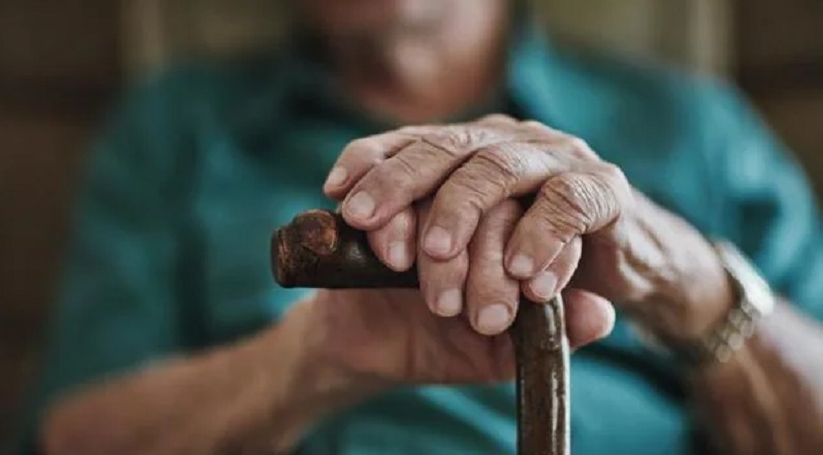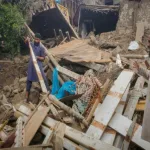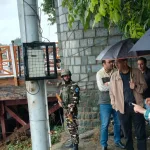In the ever-shifting landscape of modern society, Kashmir now stands at a cultural crossroads. As talk of establishing old age homes gains momentum, an unsettling question arises: are we advancing toward modernity, or betraying the very fabric that holds our social and spiritual ethos together?
For centuries, the Kashmiri household has been a living institution of love, care, and intergenerational togetherness. Elders were never treated as burdens — they were revered as the carriers of memory, faith, and tradition. But the creeping idea of old age homes, though often framed as a solution to rising neglect of the elderly, represents something far more worrisome: the slow unraveling of familial bonds, the normalization of emotional abandonment, and the displacement of deeply rooted cultural and moral values.
A tradition under siege
Kashmiri culture does not simply “care” for its elders — it honours them. The multi-generational household is not just a housing arrangement; it is a social philosophy, a spiritual foundation. Grandparents are storytellers, wisdom-keepers, emotional anchors — their presence infuses a home with warmth and continuity.
But the modern narrative, often shaped by globalized values and urban pressures, is now suggesting alternatives — institutions that isolate rather than integrate. These alternatives may offer shelter, but they cannot offer belonging. They may provide routine, but they cannot provide love. The introduction of old age homes into this cultural framework risks being not an act of progress, but a silent betrayal.
Symptoms of a deeper decay
Yes, elderly neglect exists — and it is deeply painful. But that does not mean we must accept institutionalization as the answer. Instead, we should recognize such neglect as a symptom of a deeper moral and societal decay. Our problems lie in growing individualism, the weakening of community values and an increasing preoccupation with materialism and convenience. We must ask ourselves: have we become so occupied with our careers, digital lives, and ambitions that we have lost the patience to sit besides a fading figure who once gave us their all?
Borrowed models, broken contexts
Old age homes are a concept borrowed from Western societies where nuclear families, geographic mobility, and state welfare systems define the social order. But Kashmir is not a mirror image of the West. Our values, our histories, and our emotional economies are different.
In Kashmir, the family is not just a unit — it is a sanctuary. Even amidst political conflict and hardship, families have remained cohesive. If we import solutions without considering this context, we risk cultural erosion disguised as development.
Are we truly ready to trade our traditions for trends?
Emotional displacement: A hidden trauma
Imagine the daily life of an elder who once presided over family gatherings, prayed with children in the morning, and offered wisdom over tea — now reduced to a silent room in a sterile building. The absence of familiar voices, the loss of shared meals, the coldness of scheduled visits — this is not just a change in setting; it’s an emotional displacement with potentially devastating psychological consequences.
Loneliness, depression, and a diminished will to live often go unnoticed in such institutions. And in a culture like ours, where emotions are deeply tied to family life, this displacement is not only sad — it’s cruel.
Faith, family, and responsibility
Islam teaches us not just to care for our parents, but to do so with humility and love. “And lower to them the wing of humility out of mercy and say, ‘My Lord, have mercy upon them as they brought me up [when I was] small.’” (Qur’an 17:24)
To abandon the elderly in institutions not out of helplessness, but for convenience, is not merely a lapse in social structure — it is a moral failing. Our elders once sacrificed for us without question. Now, as they grow old, do we deny them the dignity they gave us?
The way forward: Invest in the family, not in facilities
We must resist institutionalizing a problem that calls for a humane and compassionate response. Real progress lies in strengthening the family — not outsourcing it.
Consider these steps
- In-home elder care support: Provide medical and financial assistance to families who care for aging relatives at home.
- Community day centres: Establish spaces where elders can socialize, receive checkups, and engage in activities, while still returning to their families every evening.
- Flexible work policies: Encourage workplace reforms that allow family members to care for elderly dependents without sacrificing their careers.
- Education for empathy: Integrate lessons in schools about the value of elders, traditional knowledge, and familial responsibility.
These are not regressive ideas — they are rooted, responsive, and humane.
Exceptions must not become the rule
Yes, some elders have no family, or require specialized care. In such rare cases, dignified elder-care centers may be necessary. But these should be rare exceptions — not the societal standard. Institutionalization must never become the fallback for familial failure.
The role of youth: Bearers of the torch
Today’s youth are more globally connected, educated, and independent than ever before. That is not a threat to tradition — it’s an opportunity to preserve it more intelligently. It is the youth who must recognize that modernization should not come at the cost of disconnection. Do not let the fast pace of the world blind you to the stillness of your elders. Their stories, their prayers, their love — these are irreplaceable legacies.
Conclusion: A society that remembers, thrives
In the end, this debate is not just about old age homes. It is about what kind of society we want Kashmir to be — one that remembers and reveres its elders, or one that forgets them in the name of progress.
Let this be our wake-up call. Let us not be the generation that broke the chain of love, respect, and memory. Let us be the generation that reinforced it. Old age homes are not the solution to neglect; they are the final station of it.
Old age homes may look like shelters. But if they cost us our soul, they are prisons.
(The author is a freelancer, columnist, and national TV debater. Views expressed are personal and can be reached at [email protected])








